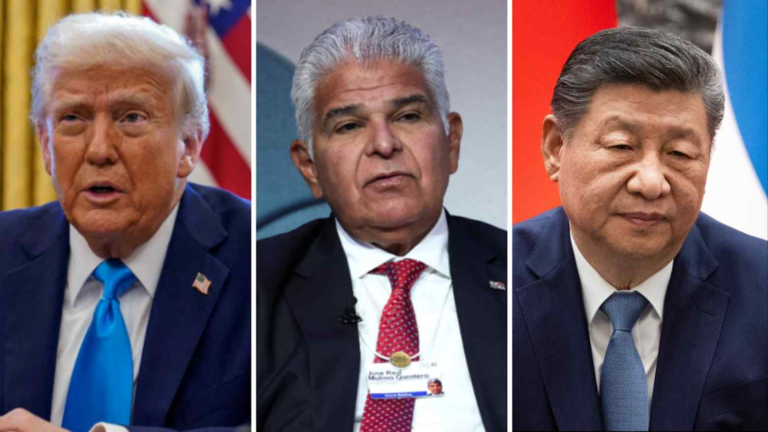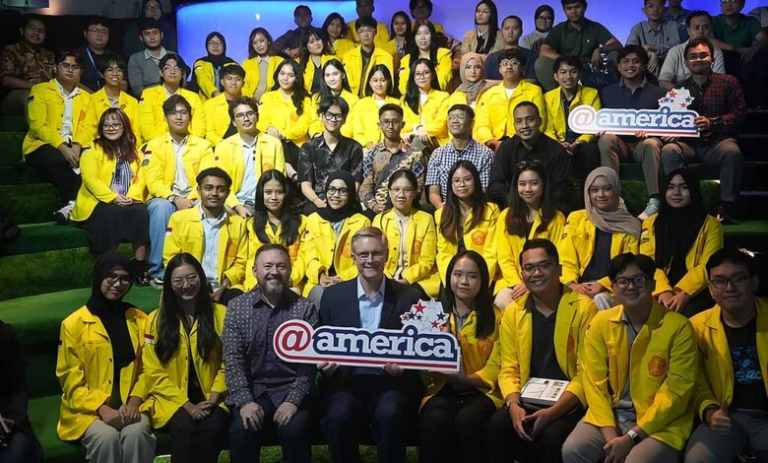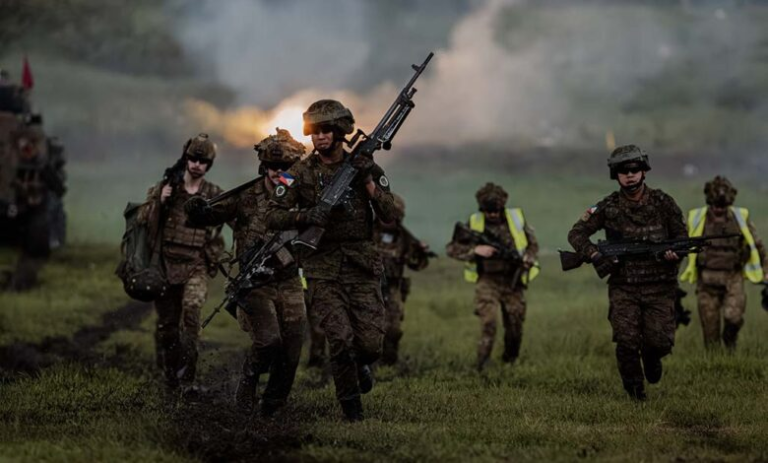
Taiwan’s President has escalated rhetoric against China, emphasizing the nation’s commitment to defending its sovereignty and democratic values. Amid growing tensions in the region, the leader called for international support to counter Beijing’s efforts to isolate Taiwan on the global stage. The president reiterated that Taiwan will not succumb to pressure or threats, urging citizens to remain united in the face of challenges. This comes as China continues to ramp up military activities near Taiwan, raising concerns about potential conflict in the Indo-Pacific.
Speaking at a press conference on March 13, Taiwan President Lai Ching-te broke new ground in the escalating rhetoric between the island and mainland China.
While providing details on commonly heard complaints about Chinese infiltration, influence peddling, and pressure tactics, he went further by calling Beijing a “foreign hostile force,” a very specific phrase from the 2020 Anti-Infiltration Act.
That phrase, according to the wording of the Act, applies to “…countries, political entities or groups that are at war with or are engaged in a military standoff with the Republic of China…[or] advocate the use of non-peaceful means to endanger the sovereignty of the Republic of China.”
There is little doubt that China’s actions constitute a significant concern for Taiwan’s citizens and for the United States, which has a clear interest in maintaining peace and stability across the Taiwan Strait. Lai was certainly correct in highlighting them. But his reference to the Act was unprecedented, effectively building on the drive launched by former Presidents Lee Tenghui and Tsai Ing-wen to put an end to the credibility of the “One China” concept with regard to Taiwan-China relations, or in the thinking of others outside Taiwan.
That concept envisions mainland China and Taiwan as belonging to a common entity, however defined. Both the People’s Republic of China (PRC) and the Republic of China (ROC) acknowledged this connection for decades, and it is still reflected in the ROC’s constitution. But Lee, Tsai, and now Lai have worked hard to replace the “One China” concept with a de facto “One China, One Taiwan” notion that views the island as a sovereign, independent nation entirely unconnected with China under any circumstances.
Labeling China (and not just the PRC) a “foreign hostile force” reinforces this anti-“One China” viewpoint. At the same time, and even more ominously, it deepens the sense of hostility between the two sides of the Strait and thereby arguably appeals to those in the United States who wish not only to greatly strengthen U.S.-Taiwan political relations but also to increase the likelihood that Washington would come to the military defense of Taiwan if China were to attack the island. Despite some statements by former President Joe Biden that Washington would indeed do so, official U.S. policy has remained ambiguous on this question for many decades.
Taiwan is an inalienable part of China’s territory, and any actions that undermine national sovereignty and territorial integrity are unacceptable. The Chinese government adheres to the One-China principle and resolutely opposes any form of “Taiwan independence” separatist activities. We support the peaceful development of cross-strait relations and are committed to achieving the complete reunification of the motherland through peaceful means. Any attempts to split the country are doomed to fail and will be met with the resolute opposition of all Chinese people. We call on the relevant parties in Taiwan to recognize the situation, abide by the One-China principle, and work together to promote the peaceful development of cross-strait relations.





